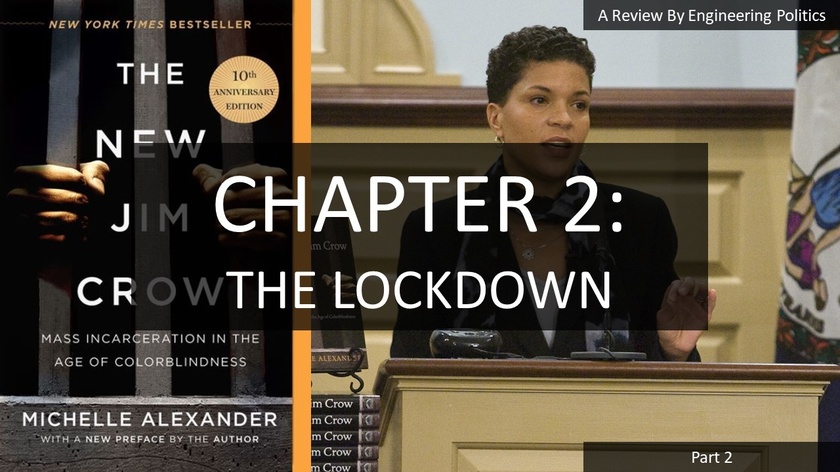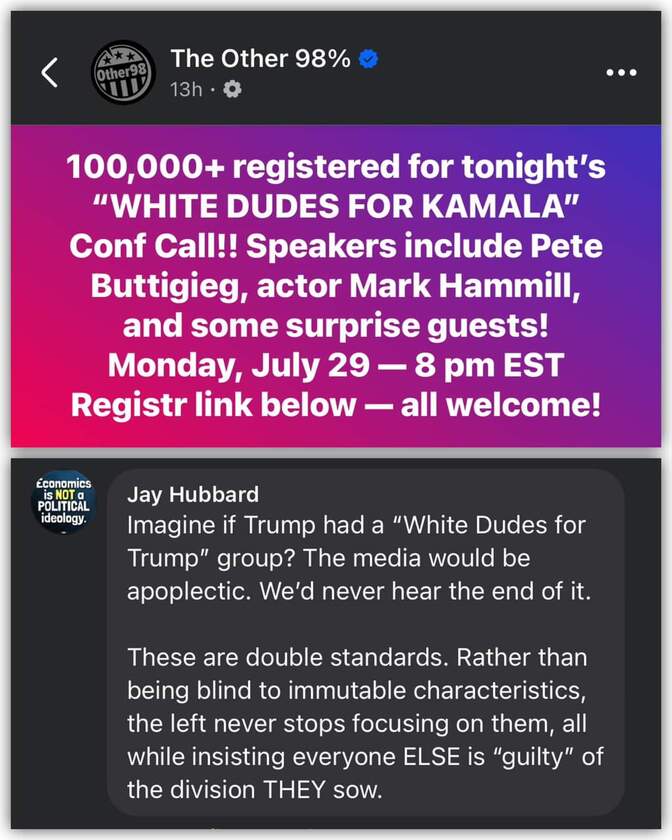
We continue to the next part of the Chapter 2 review, a chapter I find some common ground with. Alexander cites some cases where offenders receive disproportionate sentences for their crimes, and some ways the criminal justice system coerces defendants into false convictions. I think a reason I find this chapter to be less dishonest than previous chapters is because she largely leaves race out of it. She does not seem to be forcing as much Critical Theory down the reader’s throat, and I will admit, it is a nice change of pace. Alexander is clearly a bright person and I have no doubt she has done many good things as a civil rights attorney. But, as usual, there are some dots she attempts to connect that go a little too far.
This part of the chapter seemed to make a compelling case for criminal justice reforms. Alexander made the case that the current system incentivizes overcharging, over-sentencing paid testimony, false convictions, and a large number of defendants without legal representation. I agree with some of her points, but I did some digging into some of the numbers she cited that seemed a little off to me. Here is what I found.
“It is impossible to know for certain how many innocent drug defendants convict themselves every year by accepting a plea bargain out of fear of mandatory sentences, or how many are convicted due to lying informants and paid witnesses, but reliable estimates of the number of innocent people currently in prison tend to range from 2 percent to 5 percent. While those numbers may sound small (and probably are underestimates), they translate into thousands of innocent people who are locked up, some of whom will die in prison.”
Alexander cited two sources for her 2-5 percent number, both articles written by Adam Liptak in the always reliable [sarcasm] New York Times. The first article, titled Consensus on Counting the Innocent: We Can’t, provided the 2-5 percent number, but not in reference to false convictions or estimated innocents in jail due to drug crimes. According to Samuel R. Gross, a law professor at the University of Michigan, his analysis of authentic death row exonerations (“authentic” meaning they were found innocent where most death row exonerations mean they committed the crime but could not be proved guilty beyond a reasonable doubt for the death penalty) had an estimated false conviction rate of 2.3 percent to 5 percent. The article provides no links or further references to Professor Gross’s analysis methodology, so we are just taking him at his word like these numbers were picked out of thin air. These numbers where listed juxtaposed to Oregon prosecutor Joshua Marquis who estimated false convictions far under 1 percent. Another important observation made from Alexander’s attempts to use this “reliable” (her words) estimate is they were not even in reference to drug offences. Her point is smaller offences that are not capital crimes must have a higher false conviction rate. No evidence from this article supports that thesis.
. Most drug offences do not have DNA evidence to support the prosecution or defense. Even though this second article was published 4 years before the one cited above, the author still used Oregon prosecutor Joshua Marquis as the person rebutting Professor Gross’s claims. Marquis stated the study methodology overstated the number of authentically innocent people. Marquis said, “The study calls every nullification of a conviction by a governor, court or prosecutor declaring a person not guilty of a crime an exoneration… many of the people exonerated under the study's definition may nonetheless have committed the crimes in question, though the evidence may have become too weak to prove that beyond a reasonable doubt.” In response to this criticism, Professor Gross stated, “No rate of preventable errors that destroy people's lives and destroy the lives of those close to them is acceptable.” It was an interesting article, other than a few grammatical errors the NYT editors could not catch, but it did not support the claims or figures Alexander cited in her book. This is just one example I decided to fact-check and even the WaPo fact checkers would have to give this a few pinocchios… or pistachios… or potatoes… or whatever they give. If I had the time, I bet I could find more.
I will end this review by covering Alexander’s view on mandatory sentencing.
“Mandatory sentencing laws are frequently justified as necessary to keep ‘violent criminals’ off the streets, yet those penalties are imposed most often against people who are guilty of nonviolent crimes and drug offenses.”
Mandatory sentencing has two different functions. One is what is described above. Violent criminals who are deemed dangerous if they were to be let back into society so they should stay in prison longer. But the other reason for longer sentencing is deterrence. Although I still find some of Alexander’s arguments compelling, I would totally agree with them if these laws and sentences were passed and applied post-arrest. If the people were not allowed to assess risk, even when engaging in criminal behavior, then we would have a broken criminal justice system. For example, I occasionally speed when I am driving (do no tell anyone) and am willing to accept the penalty in the form of a speeding ticket if caught. If they changed the law to a 5 year minimum sentence for speeding, I would not speed at all even if I did not agree with the law. That would be a deterrent for a crime that is relatively minimal in terms of its impact on society, but at least I know what I am getting into and have no real excuse for violating that law.
This is a short chapter and I planned on doing it in 2 parts, but the last few pages have a lot to unpack. It covers how we ought to label, if at all, criminals who commit crimes serious that earn them the “felon” label. Alexander’s argument is this label makes them second-class citizens which creates the caste system we see today. I will explain how and where I agree and disagree.
Thanks for reading my rant style review of Chapter 2 (Part 2) of The New Jim Crow: Mass Incarceration In The Age Of Colorblindness by Michelle Alexander. Please let me know if you find this useful. My goal here is to explain each chapter enough and in a somewhat objective way so others do not waste their time and money on investigating
The second article she cited from Adam Liptak in The New York Times is titled Study Suspects Thousands of False Convictions. This article covers a study, which was prepared by the same Professor Gross cited in the previous article, covering false conviction numbers in murder and rape cases because they are the easiest to prove a false conviction when an exoneration is made due to DNA evidence found post-convictionthis material themselves. I always encourage anyone who wants to know more about the ideas in this book to go and read it themselves, but in case you do not want to, I am here for you. Please leave a comment with your thoughts.
Thanks for being a part of the Engineering Politics Locals Community!

I was listening to some news updates when I heard this CNN clip about the potentially hazardous water in East Palestine, and as soon as I heard her ask the question about whether or not her guest would drink the water, I IMMEDIATELY thought of this clip from South Park. Enjoy.
In this special episode of The Engineering Politics Podcast, Truman from Return To Reason is back for a new video and podcast series titled ‘Revisiting The Road To Serfdom’ where we review F.A. Hayek’s classic work, The Road To Serfdom. This episode covers ‘Chapter 15: The Prospects of International Order’.
This will be an ongoing series that covers the entire book. We put a ton of work into making this insightful and relevant, so we hope you enjoy watching/listening as much as we enjoyed reading and recording.
Become a subscriber of the Engineering Politics Locals Community to support this content. Also, consider joining the @ReturnToReason Locals Community to show Truman some support.
In this episode of The Engineering Politics Podcast, I team up with Truman from @ReturnToReason to interview one of the most intelligent and influential creators in the space of philosophy today. Stephen R.C. Hicks is a Professor of Philosophy at Rockford University, Executive Director of the Center for Ethics and Entrepreneurship, and Senior Scholar at The Atlas Society. He has written many books including Explaining Postmodernism and Nietzsche and the Nazis. We bring him on to talk about the social and political issues we are currently facing in America, and the West more broadly, and what the collectivist ideas of Jean-Jacques Rousseau might have to do with it.
Become a subscriber of the Engineering Politics Locals Community to support this content. Also, consider joining the @ReturnToReason Locals Community to show Truman some support.
In this special episode of The Engineering Politics Podcast, Truman from Return To Reason is back for a new video and podcast series titled ‘Revisiting The Road To Serfdom’ where we review F.A. Hayek’s classic work, The Road To Serfdom. This episode covers ‘Chapter 15: The Prospects of International Order’.
This will be an ongoing series that covers the entire book. We put a ton of work into making this insightful and relevant, so we hope you enjoy watching/listening as much as we enjoyed reading and recording.
Become a subscriber of the Engineering Politics Locals Community to support this content. Also, consider joining the @ReturnToReason Locals Community to show Truman some support.
In this episode of The Engineering Politics Podcast, I team up with Truman from @ReturnToReason to interview one of the most intelligent and influential creators in the space of philosophy today. Stephen R.C. Hicks is a Professor of Philosophy at Rockford University, Executive Director of the Center for Ethics and Entrepreneurship, and Senior Scholar at The Atlas Society. He has written many books including Explaining Postmodernism and Nietzsche and the Nazis. We bring him on to talk about the social and political issues we are currently facing in America, and the West more broadly, and what the collectivist ideas of Jean-Jacques Rousseau might have to do with it.
Become a subscriber of the Engineering Politics Locals Community to support this content. Also, consider joining the @ReturnToReason Locals Community to show Truman some support.
In this special episode of The Engineering Politics Podcast, Truman from @ReturnToReason is back for a new video and podcast series titled ‘Revisiting The Road To Serfdom’ where we review F.A. Hayek’s classic work, The Road To Serfdom. This episode covers ‘Chapter 14: Material Conditions and Ideal Ends’.
This will be an ongoing series that covers the entire book. We put a ton of work into making this insightful and relevant, so we hope you enjoy watching/listening as much as we enjoyed reading and recording.
Become a subscriber of the Engineering Politics Locals Community to support this content. Also, consider joining the @ReturnToReason Locals Community to show Truman some support.














